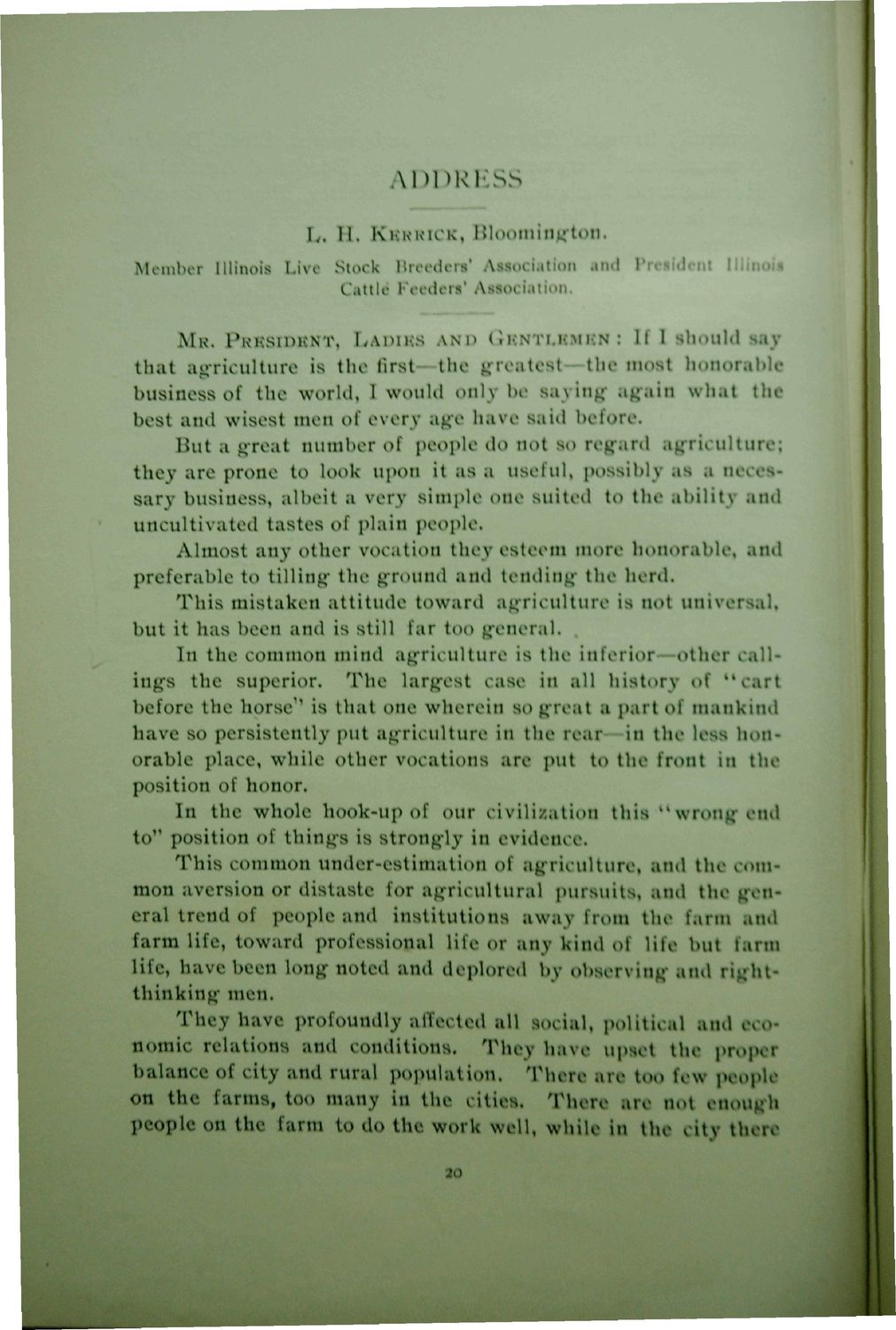| |
| |
Caption: Dedication - Ag Building
This is a reduced-resolution page image for fast online browsing.

EXTRACTED TEXT FROM PAGE:
ADDRESS L. 11- K K R R I C K , Bloom ing'ton. Member Illinois Live Stock Breeders' Association and President Illinois Cattle Feeders' Association. : If I should say that agriculture is the first—the greatest—the most honorable business of the world, I would only be saying1 again what the best and wisest men of every age have said before. But a great number of people do not so regard agriculture; they are prone to look upon it as a useful, possibly as a necessary business, albeit a very simple one suited to the ability and uncultivated tastes of plain people. Almost any other vocation they esteem more honorable, and preferable to tilling* the ground and tending the herd. This mistaken attitude toward agriculture is not universal, but it has been and is still far too general. , In the common mind agriculture is the inferior—other call* ings the superior. The largest case in all history of u cart before the horse1' is that one wherein so great a part of mankind have so persistently put agriculture in the rear—in the less honorable place, while other vocations are put to the front in the position of honor. In the whole hook-up of our civilisation this u wrong end to'1 position of thing's is strongly in evidence. This common under-estimation of agriculture, and the common aversion or distaste for agricultural pursuits, and the general trend of people and institutions away from the farm and farm life, toward professional life or any kind of life but farm life, have been long noted and deplored by observing and rightthinking men. They have profoundly affected all social, political and economic relations and conditions. They have upset the proper balance of city and rural population. There are too few people on the farms, too many in the cities. There are not enough people on the farm to do the work well, while In the city there MR. PRESIDENT, LADIKS AND (IKNVI.KMKN 20
| |